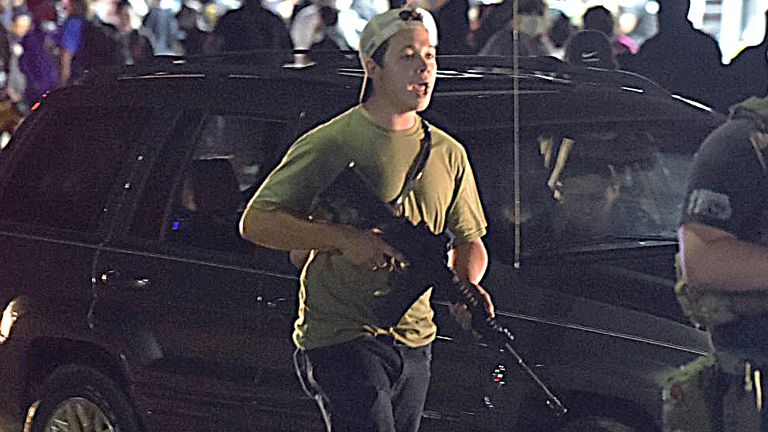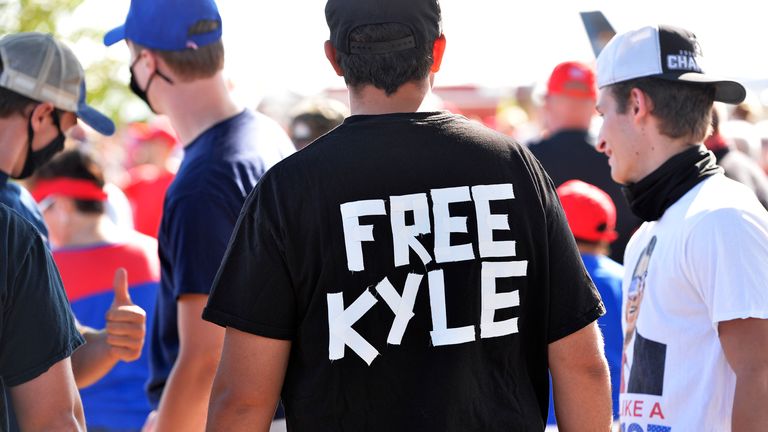What must he have thought inside his cell at a juvenile facility in Vernon Hills, Illinois?
Kyle Rittenhouse, the 17-year-old street vigilante who shot dead two people in Kenosha, is currently staring down the barrel of a double murder charge.
It’s a lonely place, no doubt, but perhaps a little less so with support from the president of the United States.
The teenager is already celebrated by some in America. Social media footage shows people wearing T-shirts adorned by his image and the words “American Hero”.
You can buy a shirt bearing the words: “Free Kyle.”
If President Trump didn’t quite articulate that sentiment in a Monday news briefing, he didn’t quite reject it either.
Asked to condemn the shootings, the president spoke of the fact that the teenager was being attacked when shots were fired.
There was no condemnation, rather, mitigation. He spoke like a lawyer mapping out a case for self-defence.
“He was trying to get away from them, I guess it looks like, and he fell and then they very violently attacked him,” he said.
Likewise when asked about Trump supporters involved in violent confrontations with rival protesters in Portland, Oregon, at the weekend before a man was shot dead (police haven’t confirmed a direct link).
He was quizzed about his supporters’ use of paint guns and pepper spray. The president said: “That was a peaceful protest and… paint is not bullets.”
Presidents, through time, have brought calm and comfort to troubled circumstances. It’s part of the job description. Perhaps, at this time, blanket condemnation of violence on all sides would be a start.
However, that doesn’t necessarily sit with a president, behind in the polls, who views America’s summer of unrest through the prism of his re-election.
Critics point to a divide-and-conquer campaign strategy, a president inflaming a toxic situation and stirring racial tension to appeal to his voter base.
His challenger for the White House, Joe Biden, has accused him of “fanning the flames of hate and division in our society”.
It’s a view reflected, in part at least, in the appeal by local government politicians in Kenosha, Wisconsin, who are preparing – reluctantly – for a presidential visit on Tuesday.
The Democratic governor Tony Evers has said he’s concerned his presence will “only hinder our healing”.
The president has countered that the visit could “increase love and respect for our country”.
If he could use the love, he needs the fear – in the suburbs. It’s where the Trump voter base resides and where it has ebbed away in the past four years.
Dark warnings of riots and anarchy coming to a street near you are a classic play on the politics of fear, designed to unsettle the comfortable middle classes and reel in a wavering vote.
Joe Biden said that Donald Trump viewed violence as a political lifeline.
The president, himself, might not disagree.


